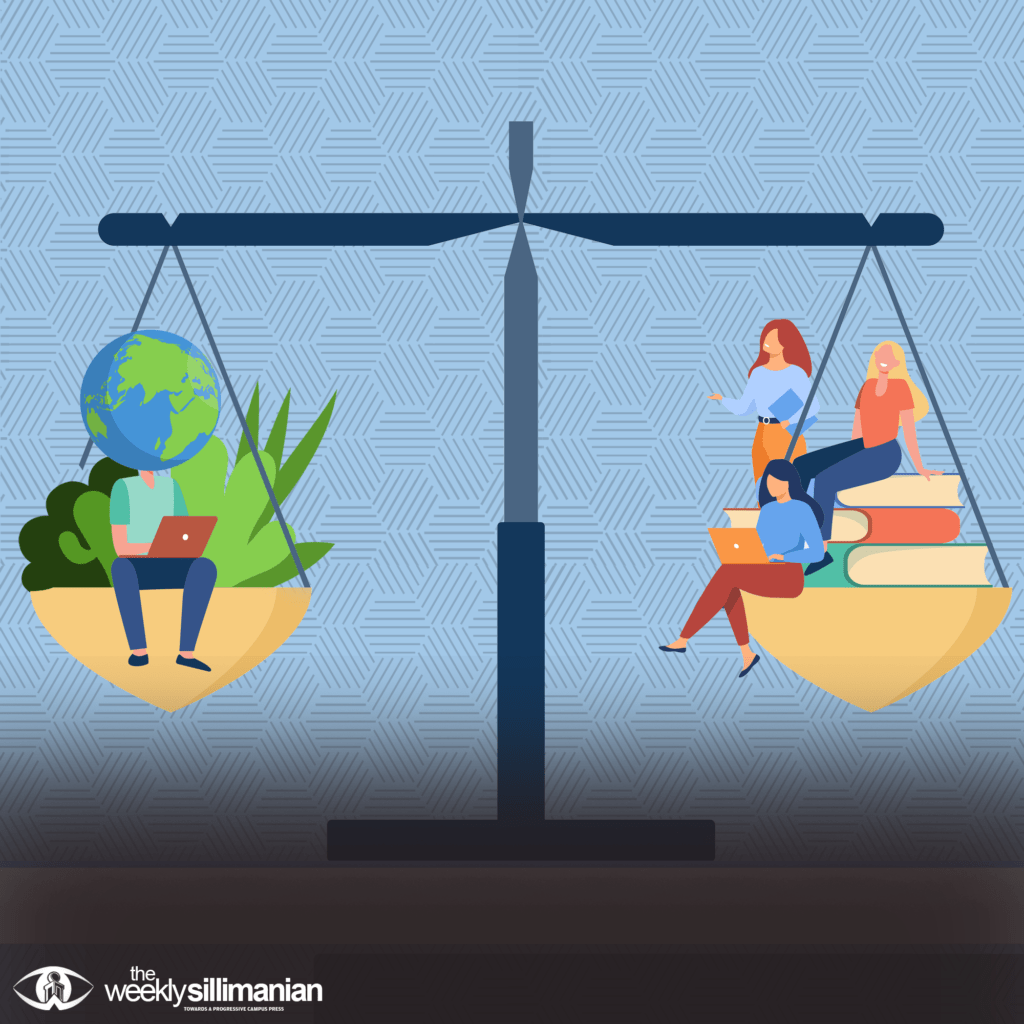by Zarelle Glen Dorothy A. Villanzana | April 9, 2022
“The pandemic is a reminder of the intimate and delicate relationship between people and planet,” World Health Organization (WHO) Director-General Dr. Tedros Adhanom Ghebreyesus stated at the 73rd World Health Assembly on May 18th, 2020.
Intimate and delicate. We forget that this is how it should be. For the past years, we’ve only ever known the abusive relation, wherein the environment falls victim to our destructive actions. It’s time that we take a different course, one driven by codependency.

This year’s World Health Day emphasizes global attention on urgent actions for the well-being of both humans and the planet. One cannot achieve great health by merely staying fit and eating nutritious food. A reflection of our well-being is also on how we treat our planet, thus we must work together to ensure a healthy and green recovery from COVID-19. Governments and societies play a role in recovery, and WHO expands on this purpose with a manifesto of six steps.
Protect and preserve nature as the source of human health.
Since the beginning of time, it has been nature that sustained us in our day-to-day lives, being a natural source of clean air and water, and most especially food. Human interventions, though, like deforestation and wildlife consumption make things a bit more complicated. Additionally, harmful agricultural practices like the use of farm chemicals, pollute freshwaters, marine ecosystems, and the air, reducing the original benefits which our environment provides.
Invest in essential services from water and sanitation to clean energy in healthcare facilities.
Access to healthcare is a human right, yet billions of people around the world still lack this. Given the current situation, WHO urges that proper sanitation be present in facilities, and even at home. We have been doing this for years now, and it is this aspect of the new normal that we must continue to uphold even after we recover from the pandemic. The World Health Organization (WHO) estimates that more than 13 million deaths around the world each year are due to avoidable environmental causes, and one of these is the climate crisis. Healthy environments are truly necessary to prevent these disasters.
Ensure a quick and healthy energy transition.
In 2020, slight evidence was seen of healing due to lockdowns and health regulations set worldwide. Pollution levels decreased in some places and locals began to experience standing under blue skies and breathing clean air. Still, of the entire global population, 99% are said to exceed WHO air quality guideline limits; air pollution still continuously poses a great danger to the health of people, increasing the risks of heart disease, asthma, and cancer. This issue results from the burning of fossil fuels that similarly contribute to climate change. Actions presented by WHO to manage it is for us to shy away from using fossil-fueled energy sources to combustion-free power sources, like solar or wind.
Promote healthy and sustainable food systems.
While agriculture cultivates our relationship with the environment and keeps our economy going, it is actually the leading source of pollution in many countries. Necessarily, we need to transition from unhealthy, high-calorie diets to the ones that are nutritious and sustainable. Eat more fruits and vegetables, consume dairy products in moderation, and avoid eating more than what is needed, especially with treats. Additionally, choosing whole grains, eating locally-made foods, drinking tap water, and avoiding the use of extra packaging will definitely help reduce disease risks and greenhouse gas emissions.
Build healthy and livable cities.
Half of the world’s population lives in cities. Although fancy with their bright lights and busy streets, they are responsible for 60% of both economic activity and greenhouse gas emissions. Governments need to work on redesigning their cities and incorporating health into urban planning policies to promote active living, sustainable mobility, and energy efficiency. It is best that we choose legs over wheels, to reduce carbon emissions while keeping us fit.
Stop the use of taxpayers’ money to fund pollution
Above all, there is nothing more heart-wrenching than the idea of paying for polluted air. Not only will this cost you money, but also your health, particularly your lungs. Thus, the last action prescribed by WHO is to disallow subsidies on fossil fuels, such as for power generation and transport. Instead, to subsidize or exempt tax on clean energy and fuels such as solar-, hydro- and wind-based electricity.
As the world came to a standstill, just like many moments, we were unbothered at first. But years passed, and a gap opened up for us to peek into the atrocities we have collectively caused against the commandments of nature. We realized we have spent too much time in self-interest, we have destroyed the balance between the people and the planet. Everyone wants the planet to heal, only now realizing how much could be deprived of us without proper concern for our environment. At least we have woken up, but can we preserve it when the long-sought “normal” comes back?
Let us not allow our destructive lifestyles to reemerge and sweep away our progress towards well-being, for both ourselves and the environment. Remember that humans and nature depend on one another. We must unlearn our abusive behaviors and retrieve that intimate relationship we once had with our planet.
References
9 practical tips for a healthy and sustainable diet. (2018, April 19). Eufic. https://www.eufic.org/en/food-production/article/practical-tips-for-a-healthy-and-sustainable-diet
Billions of people still breathe unhealthy air: new WHO data. (2022, April 4). World Health Organization. https://www.who.int/news/item/04-04-2022-billions-of-people-still-breathe-unhealthy-air-new-who-data
Episode #9 – Air pollution & COVID-19. (2020, October 23). World Health Organization. https://www.who.int/emergencies/diseases/novel-coronavirus-2019/media-resources/science-in-5/episode-9—air-pollution-covid-19
WHO Manifesto for a healthy recovery from COVID-19. (2020, May 26). World Health Organization. https://www.who.int/news-room/feature-stories/detail/who-manifesto-for-a-healthy-recovery-from-covid-19
World Health Day 2022. (2022, April). World Health Organization. https://www.who.int/campaigns/world-health-day/2022#


